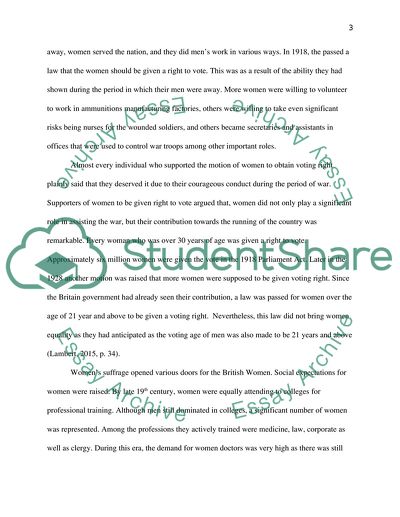Cite this document
(“6. To what extent were womens lives transformed by obtaining the vote Assignment”, n.d.)
6. To what extent were womens lives transformed by obtaining the vote Assignment. Retrieved from https://studentshare.org/social-science/1683606-6-to-what-extent-were-womens-lives-transformed-by-obtaining-the-vote-in-1918-and-1928
6. To what extent were womens lives transformed by obtaining the vote Assignment. Retrieved from https://studentshare.org/social-science/1683606-6-to-what-extent-were-womens-lives-transformed-by-obtaining-the-vote-in-1918-and-1928
(6. To What Extent Were Womens Lives Transformed by Obtaining the Vote Assignment)
6. To What Extent Were Womens Lives Transformed by Obtaining the Vote Assignment. https://studentshare.org/social-science/1683606-6-to-what-extent-were-womens-lives-transformed-by-obtaining-the-vote-in-1918-and-1928.
6. To What Extent Were Womens Lives Transformed by Obtaining the Vote Assignment. https://studentshare.org/social-science/1683606-6-to-what-extent-were-womens-lives-transformed-by-obtaining-the-vote-in-1918-and-1928.
“6. To What Extent Were Womens Lives Transformed by Obtaining the Vote Assignment”, n.d. https://studentshare.org/social-science/1683606-6-to-what-extent-were-womens-lives-transformed-by-obtaining-the-vote-in-1918-and-1928.


